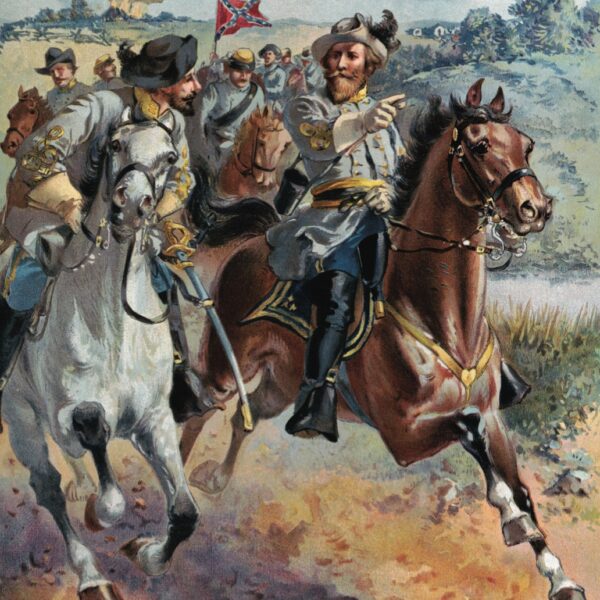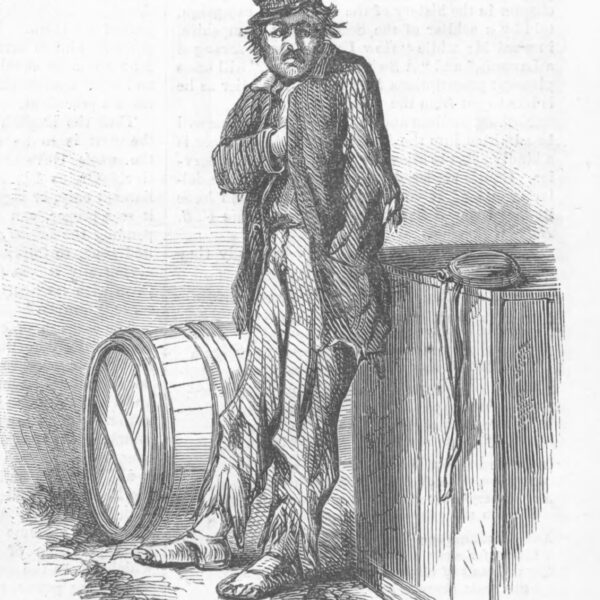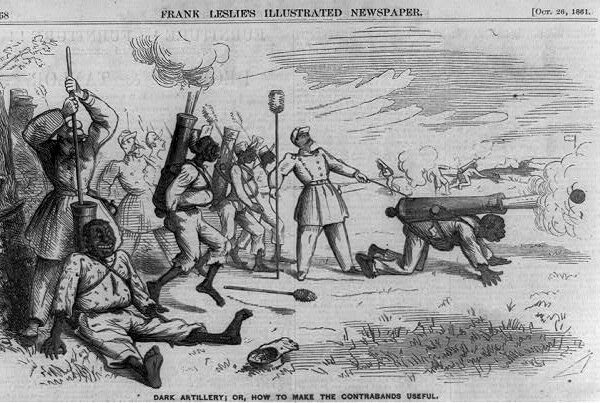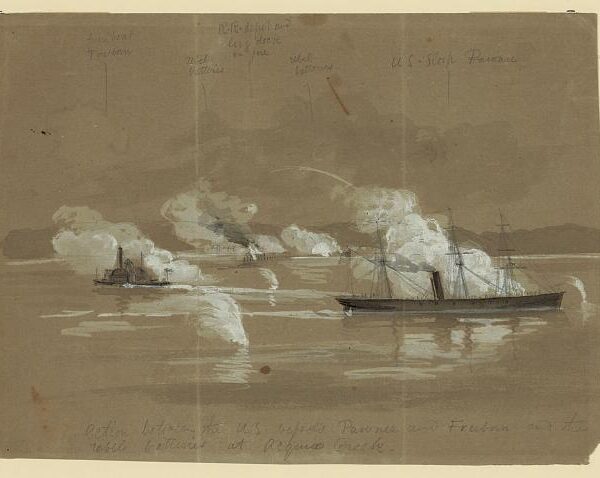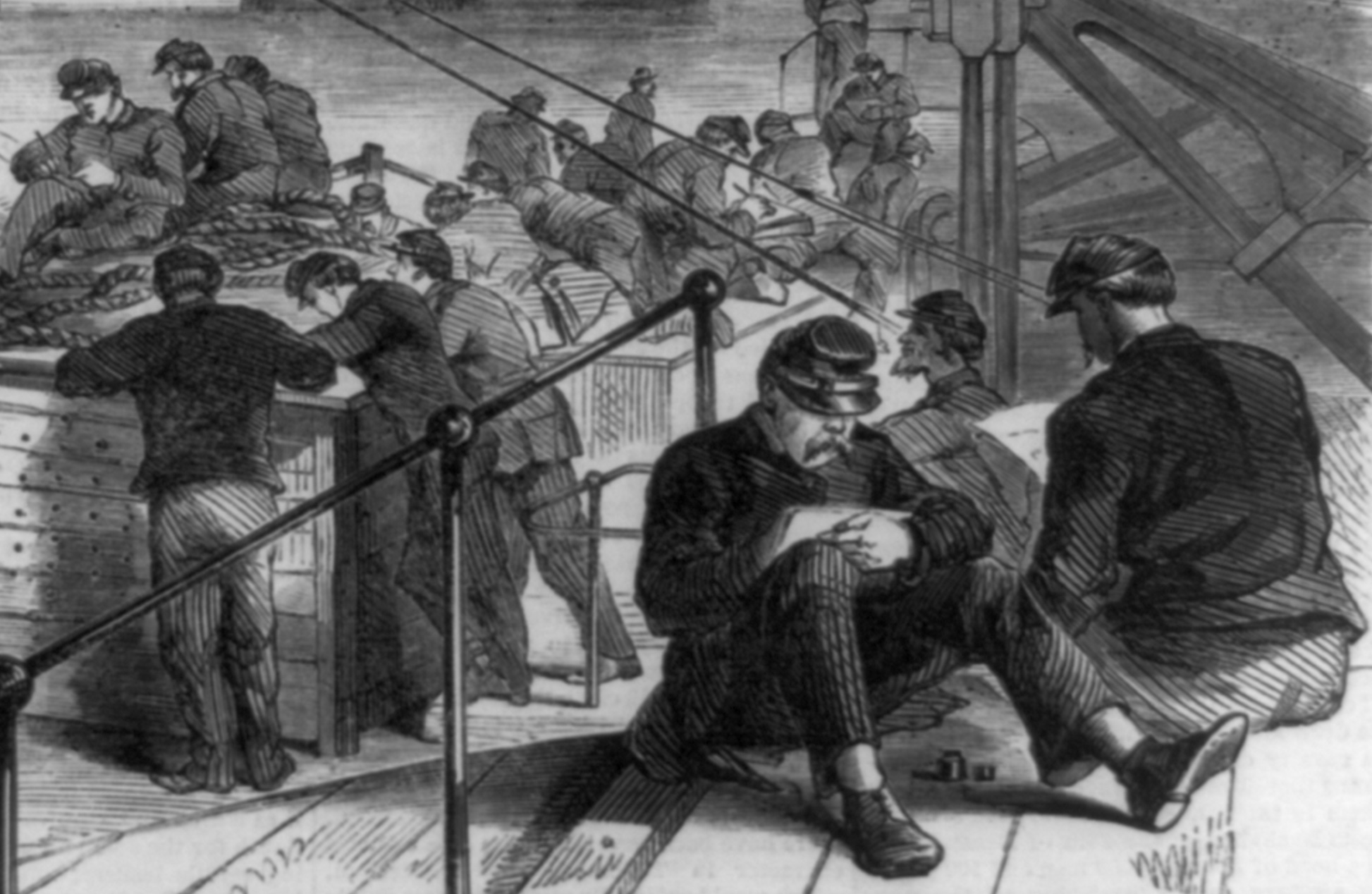
We would like to believe that Civil War letters transport us back to the historical reality of the camp and the battlefield. These letters are not, however, transparent windows into the past. They are products of men struggling to depict a situation that was radically different than anything they had endured before. We would also like to believe that soldiers wrote candidly about what they were experiencing. Questions of truthfulness, however, obscure how the act of writing was and is an act of perceiving. Men acted and thought in contradictory ways, but in writing letters home they restored a degree of stability to their lives, even though they admitted to readers that they were navigating the unknown. The men profiled below—Charles Bowen, William Wagner, and Charles Biddlecom—illustrate how soldiers’ words and actions were not always in alignment, even as they professed strong opinions about the nature of the war, the political stakes of the conflict, and why they fought. Dear Friends at Home: The Civil War Letters and Diaries of Sergeant Charles T. Bowen, Twelfth United States Infantry, 1861–1864(2001) Ed. by Edward K. Cassedy
On June 18, 1864, as he looked across a barren landscape toward Petersburg, Virginia, Charles Bowen of the 12th United States Infantry imagined his own death. On the far horizon arose a massive Confederate fortification loaded with artillery and infantry. Sure that he would be in the last spasms of life in less than an hour, Bowen turned to a sick soldier headed for the rear and handed him some personal items—a pocketknife, a diary, and a locket containing a picture of his wife—in hopes of having them returned to his family in Utica, New York. He then took his place in the ranks, just before the order to advance was given. As soon as Bowen and his comrades stepped into the open expanse, they were engulfed in a flame of smoke and fire. One solid shot knocked a file of men 10 feet in the air, but out of the chaos the ranks staggered forward, until they were within the lethal range of canister. Each blast shredded soldiers into unrecognizable forms of humanity. “Men were cut in two & hurled [into] a disfigured mass of flesh & rags to the ground,” a stunned but whole Bowen later wrote. “Arms, legs, headless trunks, & heads without bodies were strewn in every direction.”
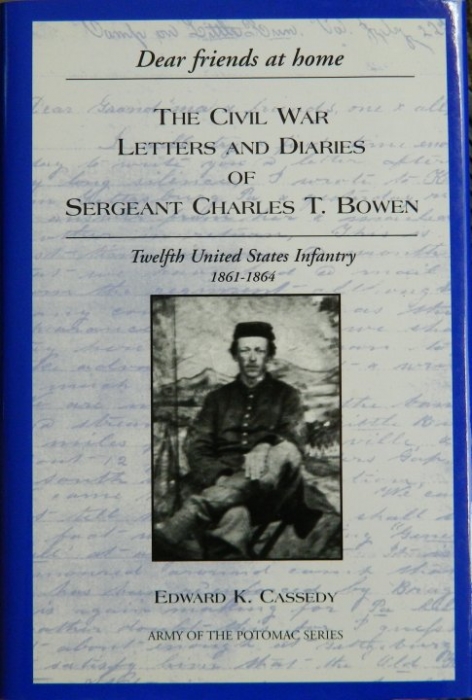
Quick-thinking officers ordered Bowen and other survivors to find shelter in a swale until the benevolence of night gave them sufficient cover to throw up a line of earthworks. The next morning the sun unveiled a maze of trenches zigzagging in every direction, constructed throughout the night by men in awe of their own survival. Bowen tried to make light of his ordeal, joking to his wife that he had expected to be discharged from “earth & army at the same time.” No attempt at humor, however, could soften the memories of nearly continuous killing in the six weeks since the inception of the Overland Campaign on May 5, 1864. Throughout his military career—one that included every major engagement of the Army of the Potomac from 1862 through 1864—Bowen wrote with remarkable fearlessness about the savagery of soldiering. Bowen was more introspective than most Civil War veterans in exploring the ways that war twisted him into a strange and unfamiliar person.
Conflicted feelings pulled him down after every battle, leaving him torn about the act of killing, despite his unfaltering obedience in following his officers into infernos of death. On the eve of the Overland Campaign, Bowen confided to his wife, “I hate to go to the front again, my time is so near out, but Im in for it I suppose & will have to take my share.” “One thing I am determined on,” he asserted, “that is to do my duty at whatever cost, & you may rest assured that I shall die like a soldier or come home after having done my duty as a soldier.” Bowen adhered to his grim promise, even when his unit was called upon to attack Confederate works in one senseless charge after another. While duty pushed him forward, it did not reconcile the New Yorker to the monstrous acts of human destruction. At the beginning of June 1864, after his regiment had repulsed an enemy assault outside Richmond, Bowen recorded the scene: “When the smoke cleared up we could see the ground in front & it was a horrible sight indeed, human beings wounded, struggling & squirming over the dead, cries for water, help, mercy & the Lord only knows what else.” Three Union generals publicly recognized the heroics of Bowen’s regiment, but their compliments were unsettling to him: Praise from above generally signified more fighting. “I don’t like the infernal mean scrapes it gets [us] into,” he admitted. When Bowen put pen to paper he sought the realism that evaded many Civil War soldiers. The New Yorker, who managed to survive the war, was an uncompromising writer who demanded that those at home bear witness to the colossal brutality of organized killing. If the sacrifice of blood was to redeem the Union, Bowen believed, those at home must confront the carnage and see it in all of its grotesque forms. Otherwise, they would never understand or sufficiently appreciate the suffering that had been endured for the cause. At the same time, he wanted his readers—then, and probably now—to realize that his writings spoke no single truth. Letters of William F. Wagner: Confederate Soldier (1983) Ed. by Joe M. Hatley and Linda B. Huffman
The letters of Confederate William Wagner should be read out loud. A farmer of modest means and limited education, he struggled to make his pen articulate what he usually said in person to his wife. His grammar is jagged, his spelling phonetically creative, and his thoughts spill out in a stream-of-consciousness manner. Listening to Wagner’s letters is jarring, clueing us into how difficult it was for some soldiers to communicate with those at home. Most Civil War soldiers were used to face-to-face communication, and Wagner wrote to his wife as if he were sitting at the kitchen table, chatting about the day’s affairs. Wagner’s letters offer rare insights into the contradictory thinking of a reluctant Confederate, one who ultimately gave up on his nation for the fantasy of returning to the Union. He enlisted under the pressure of conscription, joining the 57th North Carolina in 1862, just in time to see bodies mangled at Fredericksburg and Chancellorsville. Confederate victories did little to relieve the depression of a man who thought the war a grotesque violation of humanity. When Lee’s army began its northern raid during the summer of 1863, he dreaded the imminent prospect of more slaughter. Upon entering Pennsylvania he was struck by the number of civilian men in every town and the lushness of a countryside untouched by war—incontestable proof in Wagner’s eyes that a depleted Confederacy could not persevere against such odds.
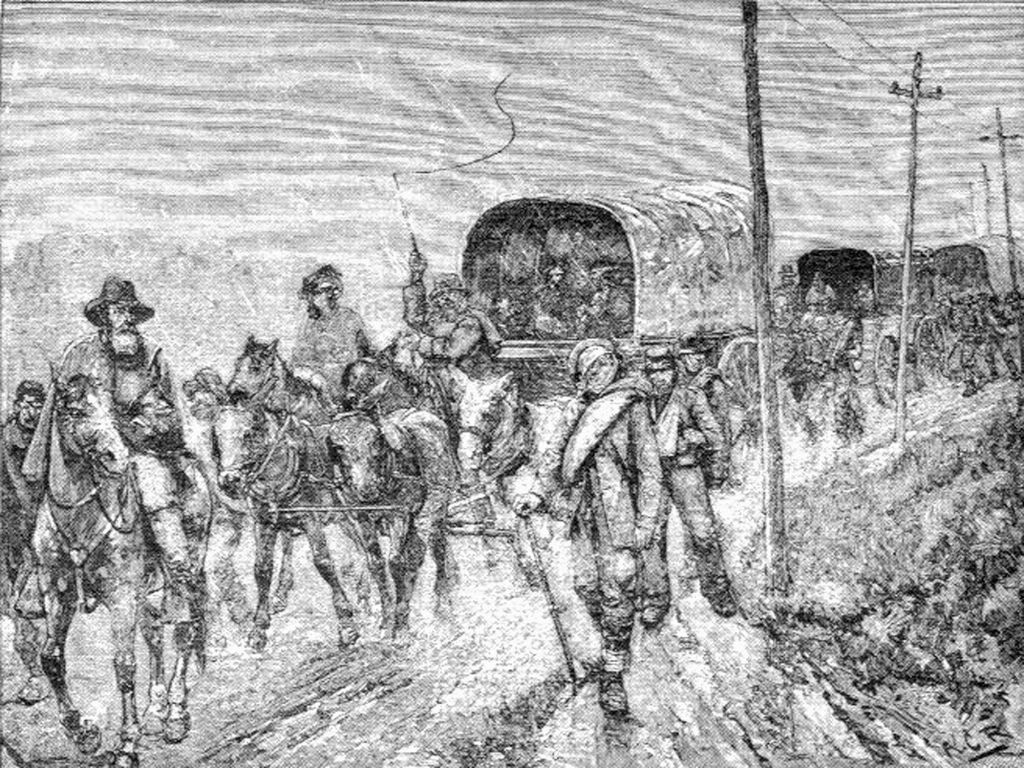
Defeat at Gettysburg crushed Wagner’s spirit, though he was thankful to Providence for sparing him during two vicious attacks, including a desperate charge at Cemetery Hill. When he returned to Virginia, Wagner drew hope from comrades who deserted. In late summer and early fall, scores of Lee’s veterans headed for the hills. “I wouldent care if they would all Runaway,” he wrote on August 15, “and then I am shure I would go too for God onleys knows I want this war to End.” Wagner was torn. He wanted to slip away, but his wife, thinking of the perilous life of a deserter, wanted him to stay. He loathed his officers, calling them “big-headed” men for publishing patriotic resolutions in the newspapers that were falsely attributed to the rank and file. He wanted his wife to know that the men had never passed such resolutions, and that they were badly divided over whether to continue the fight.
Wagner’s rage never materialized into subversive action. He remained in the ranks not out of a sense of duty, but because he felt trapped. His gut-wrenching desire to escape Lee’s army and reunite with his family was poignantly captured in a postscript to an August 15, 1863, letter: “Dear if I onley could be at home to Eat peaches.” Wagner never made it back to his Catawba County farm to enjoy the simple pleasures of family life. He was captured during the fighting at Rappahannock Station on November 7, 1863, and sent to Point Lookout prison, where the North Carolinian died two months later of chronic diarrhea. His body was buried in a mass grave in Maryland. No Freedom Shrieker: The Civil War Letters of Union Soldier Charles Biddlecom (2012) Ed. by Katherine M. Aldridge
Just as New Yorker Charles Biddlecom was about step into line and enter the Wilderness with the Army of the Potomac, a few comrades took him aside and begged him to desert. They were headed west to the Blue Ridge Mountains, in the opposite direction from the killing grounds of the 1864 Overland Campaign. Biddlecom had wanted to run away as soon as he was conscripted in 1863. In the ranks, he felt as if he were a thing, a disposable part to be used by uncaring and unthinking officers. “Cursed be the day that saw my name drawn as a conscript and d—d be the hour that I made up my mind to come as a draft,” he wrote. “I think sometimes that if it was not for you and my children I would blow out my brains. D—n the South. D—n the war and all that had anything to do in getting it up.” Not long after he joined the Army of the Potomac, Biddlecom’s body started to break down. During a November 1863 hike, his legs swelled, diarrhea struck, and he collapsed by the roadside. In a 24-hour period he expelled “over thirty passages of the bowels.” He had “passed so much blood and mucus and become so weak,” he wrote, that he “could hardly stand alone.” Biddlecom sought a medical discharge, but the army’s surgeons were indifferent to his suffering. At that moment of crisis, when his body and mind were on the verge of collapse, Biddlecom could have felt justified in fleeing, but in the end he watched his comrades vanish toward the Blue Ridge. A few days later Biddlecom was engulfed in a ferocious killing spree that exceeded his darkest imaginings. On June 29, 1864, after surviving the bloodiest campaign in the history of the Army of the Potomac, Biddlecom neared his breaking point. He could not imagine another day in the ranks, let alone the two years remaining in his enlistment. “I hate this life worse than a cat does hot soup,” he exclaimed to his wife. “If I ever get out I will stuff my old uniform with straw and stand it up in one corner to look at when I feel out of humor just to remind me that home with its little cares and troubles is not the worst place in the world for a man to enjoy life.” Eleven days later, Biddlecom experienced an incredible reversal of thought when he was issued a new blouse. Suddenly, he hated to bid farewell to his old coat, wanting to send it home and to display not as a reminder of the worst, but as a relic of his heroic service and the bloody sacrifices of his comrades.
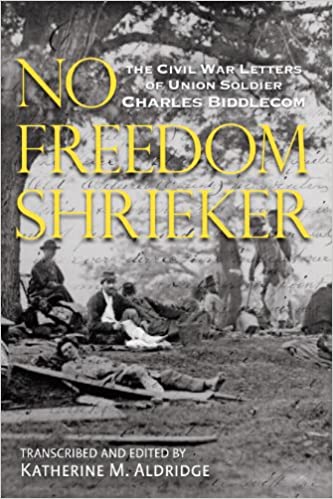
The remarkable letters of Charles Biddlecom illustrate how members of the rank and file never stopped valuing their battle experiences as a testament to their manliness, even during those moments when their thoughts and actions were convulsed in contradictions over how they should act in the ranks. Civil War soldiers never stopped reminding those at home that although they were weary of bloodshed, they were inmates in the army, having no choice but to do their duty amid the madness of war.
“I have tried my gun on the Rebs to my satisfaction and now I should like to come home,” Biddlecom confided after his first encounter with the Confederates. “But I suppose Uncle Abe will keep me at this war as long as I can shoot a gun.” In just a few sentences Biddlecom outlined what thoughts and actions were available to him in the ranks. He acknowledged the institutional forces of the army were beyond his powers to challenge. Biddlecom would survive his enlistment and return to his native New York, but during his time in the ranks he never stopped loathing the war, loving his comrades, despising the Lincoln administration, or believing that killing for the nation was a sacred duty. Like Bowen and Wagner, Biddlecom was remarkable in his ability to reach deep into the dark side of war. But it would be a mistake to put forth these three books as pathways to the “real war.” Our obsession with finding authentic voices from the ranks is ridiculously subjective and largely a fruitless debate over what constitutes realism in the Civil War. It distracts us from fully appreciating how soldier correspondence—when examined as an entire body of work and not through isolated quotes from individual letters—exposes the ebb and flow of soldier thought, including tensions and contradictions that naturally arose when men had to confront the imponderable moral and political questions of organized warfare.
PETER S. CARMICHAEL IS FLUHRER PROFESSOR OF HISTORY AND DIRECTOR OF THE CIVIL WAR INSTITUTE AT GETTYSBURG COLLEGE. HIS LATEST BOOK, THE WAR FOR THE COMMON SOLDIER, WAS PUBLISHED IN 2018 BY THE UNIVERSITY OF NORTH CAROLINA PRESS.
This article originally appeared in the Summer 2014 (Vol. 4, No. 2) issue of The Civil War Monitor.

